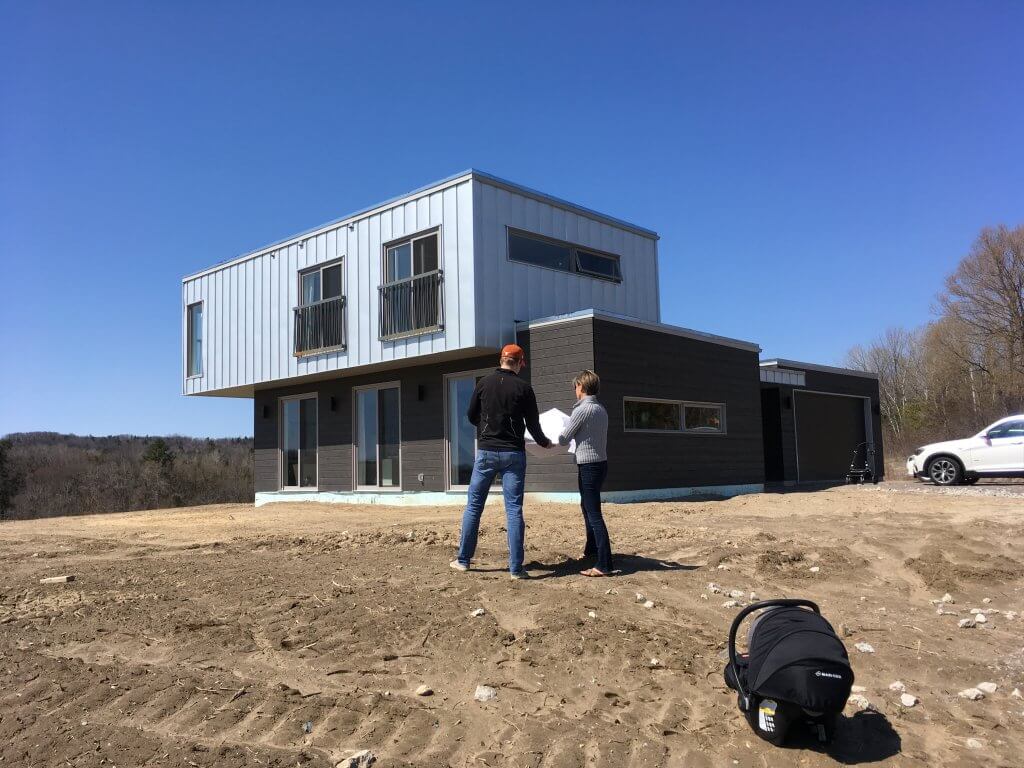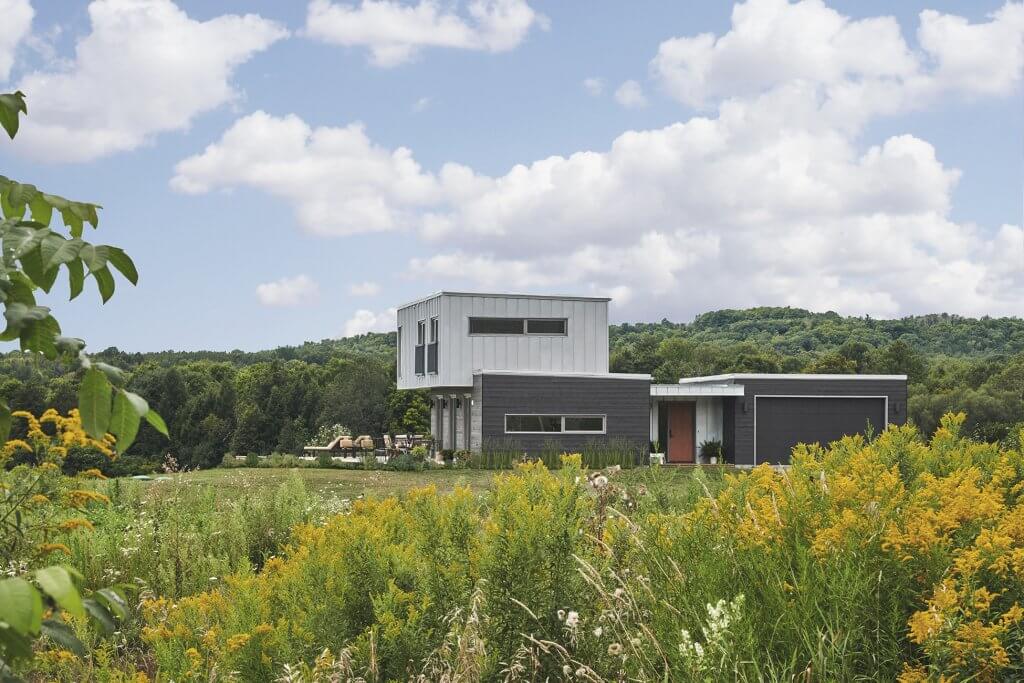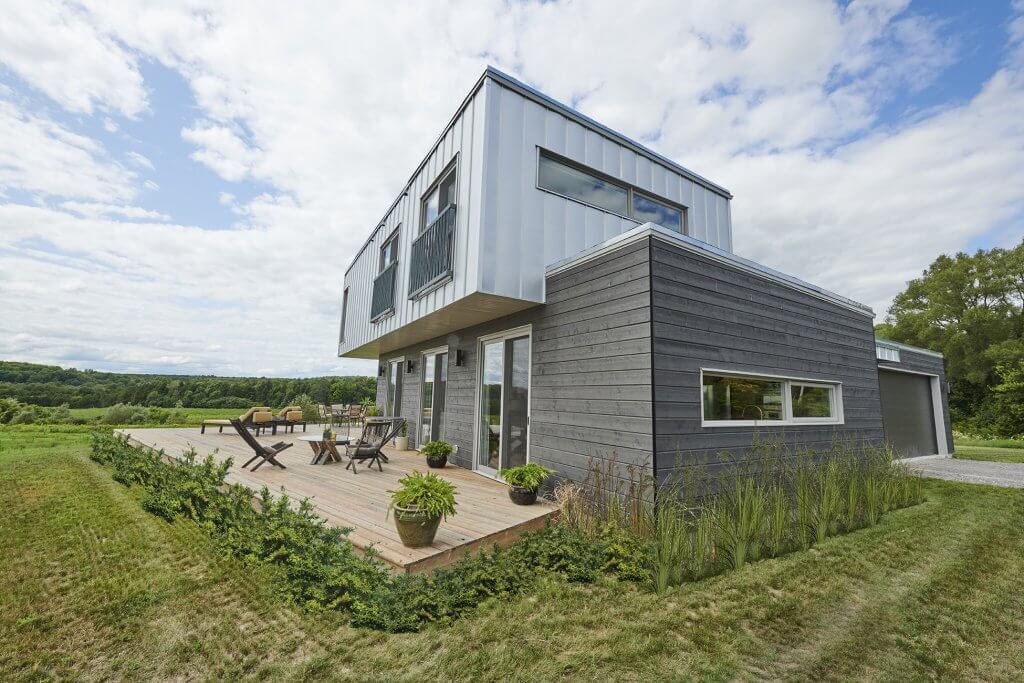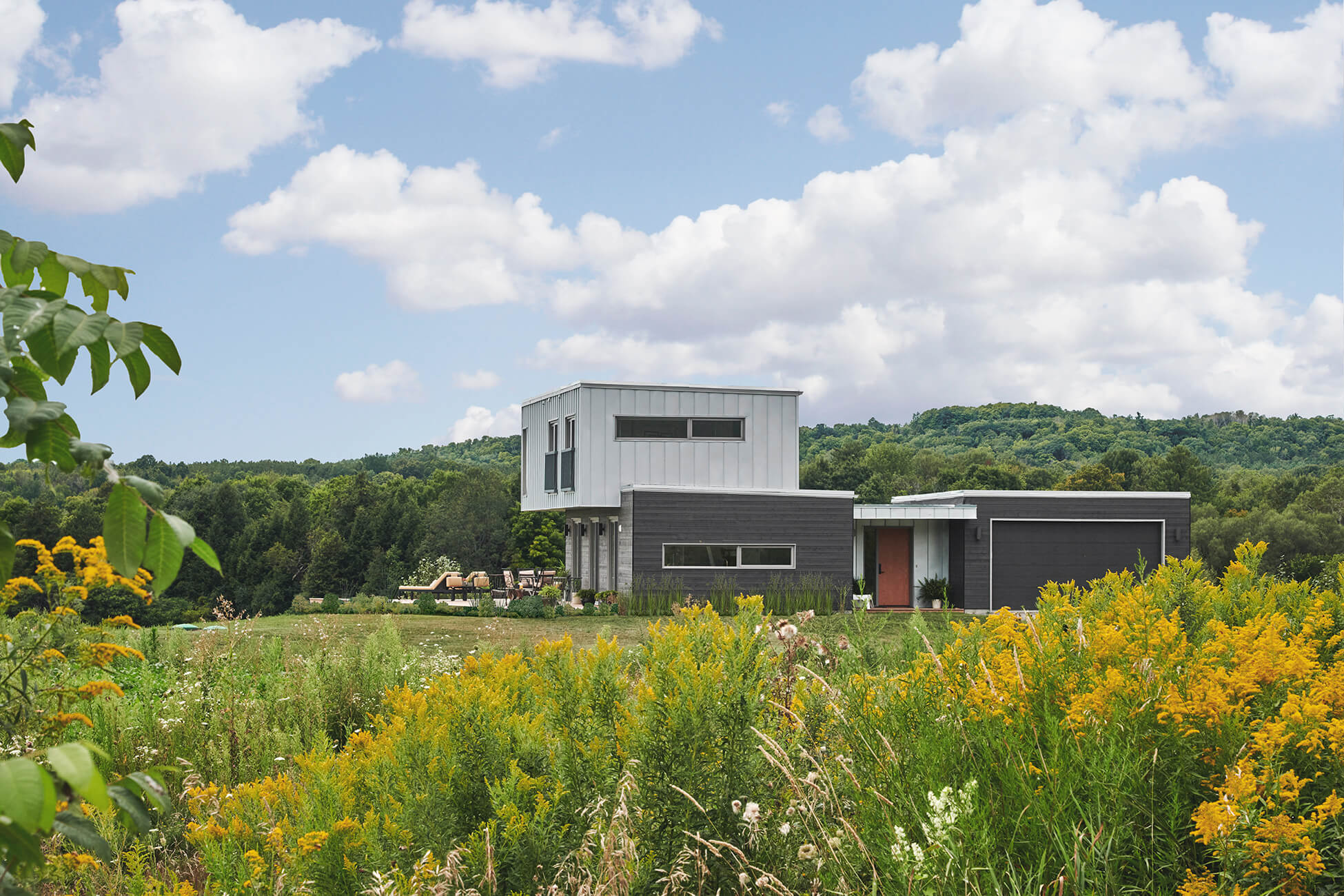THE GLOBE AND MAIL
DAVE LeBLANC
2019 SEPTEMBER 13
“You see them come in as little Grade 9s – big eyes and scared of the world – and you see them all dressed up at prom and graduation, ready to take it on, and from there, their talent just goes like this”, says Hastings and Prince Edward District School Board superintendent of education Laina Andrews as she creates an upward arc with her hand.
Sitting a few feet away at the kitchen island, one of those former big-eyed kids – now a tall, regular-eyed, married architect with a second child on the way – cradles a cup of coffee and tries to remain humble, even though he’s obviously proud of the home he designed for Ms. Andrews in 2016.
 The last time Craig Race and the tanned, athletic, sixtysomething spent this much time together, she was his vice-principal at CDCI West in Cobourg, Ont., and Mr. Race was an eager – if slightly annoying – member of student council.
The last time Craig Race and the tanned, athletic, sixtysomething spent this much time together, she was his vice-principal at CDCI West in Cobourg, Ont., and Mr. Race was an eager – if slightly annoying – member of student council.
“He wasn’t in the office a lot,” she counters with a laugh. “[But] they were always trying to get away with doing crazy things that I had to really think about before I said yes or no.”
When Ms. Andrews looked up Mr. Race 15 years later, he was a rising star at Toronto firm Sustainable, and she was searching for land in the Cobourg/Port Hope area (about 100 kilometres east of Toronto) after having a less-than satisfactory experience building a custom home. “I never felt that the house was together … there were things missing and [Mr. Race’s] eyes looked at it and he said, ‘Yeah, I see what’s missing.’ ”
Perhaps things were “missing” because this builder’s home used architectural technologists rather than an architect; perhaps it was because Ms. Andrews isn’t your average client. She knows exactly what she wants, and, more importantly, what she doesn’t. What offends her sensibilities? “Wasted things” in a design: Why trap all that air above one’s head in a complex, McMansion-style roof if it’s unusable? Why have curly-cue moulding on a baseboard when “I just need something to hide where the floor meets the wall.”
That’s not to say ornament doesn’t have its place. As a lover of heritage architecture, today’s mixing-and-matching drives her crazy also: “When you’ve got Victorian filigree on an Arts-and-Crafts home, for example; when you’ve done this mish-mash Colonial with modern features or Roman columns or something like that.”
Strong words such as these require a strong architect. Thankfully, Mr. Race is no shrinking violet; his views on wasted space and willy-nilly builders so aligned with hers, the first series of sketches proposed got the nod of approval, even though the final “Meadow House” looks somewhat different.

It all started with the meadow north of Cobourg, of course, and where to place the dwelling. With a neighbour on one side, a treelined country road on the other, and a vast, flowered and forested area sporting fiery sunsets on 2 1/2 sides, that was a no-brainer. And after the team brought infill (from the many subdivisions being built nearby) to raise that portion of the lot a few feet, it became even better.
The first design consisted of a no-nonsense, double-height box with long vertical windows. Nice, but “boring,” says Mr. Race, who included an alternative that “twisted” the upper box 90 degrees to cantilever it over the ground floor; while that cantilever was lessened over the next few months, what was built is still a striking, yet simple, way to achieve visual interest while also providing a sun-shading device. Since a garage was required, Mr. Race used it as the “third element in the organization of cubes,” and then created a “quasi-fourth element,” a sheltered entry-point. Exactly two materials clad everything: Low-maintenance Maibec wood siding and standing-seam galvanized aluminum, which never meet: “We didn’t want any two boxes that were touching having the same cladding,” offers Mr. Race, “so it goes wood-metal-wood-metal and improves the composition.”
The inside composition is just as lovely. A mottled concrete floor – the serendipitous result of tarping and sand blowing underneath while curing – lies underfoot in the generous foyer and extends into the kitchen, which features cabinets clad in rich cherry wood that weren’t so rich when Ms. Andrews first saw them. When delivered, she remembers, they looked blond, and she “almost had a coronary.” She was assured, however, that the wood would tan naturally: “It was quite incredible, it keeps darkening,” she enthuses.
A long strip window over the soapstone-clad sink counter allows her to see who’s coming up the drive, and three sliding doors on the long wall drink in views of the meadow: “Everywhere you look out has a different feel to it,” she says.
Up the unfussy, open-tread stairs – the mid-century-inspired handrail and pickets were created by a shop teacher at one of her schools – and what’s notable in the two bedrooms are the deep walk-in closets and generous ensuites. While both sport repurposed mid-century credenzas as vanities, only the one belonging to the master enjoys a Juliet balcony.
“Although the house is simple, it is not short on storage space and the amenities,” Mr. Race says of the 1,600-square-foot building.

On the deck outside – which feels like an “infinity deck” because of how it floats over a drop in the landscape – Ms. Andrews and her daughter watch wild turkeys, deer and the many pollinators go about their business. It’s a view that can make one pensive: “I think people think that to build something that’s not a traditional home costs more,” Ms. Andrews finishes, thinking about the very reasonable $300 per square foot she spent on Meadow House. “But it’s not about the materials you use, it’s about how you use them, and it’s about hiring somebody who knows how to use them.
“I’ve spent a lifetime loving architecture and loving [the] design of houses more than most people, but I’m still not qualified to put this together.”
Thankfully, one of her former students took it on, and soared.
To read more about the project: https://craigrace.com/portfolio/cobourg-meadow-house/

